This symposium was made possible by:



21 May 2024
De Blauwe Zaal, TU/ Eindhoven
symposium@tsvjapie.nl
IG: @symposium.japie
“Circularity: The New Shape of Chemistry” is a dynamic symposium organized by the study association of Chemical Engineering and Chemistry at the Eindhoven University of Technology, ‘T.S.V. Jan Pieter Minckelers’.
This student-driven event aims to bridge the perspectives of academia and industry, providing a platform for discussions on the latest developments and challenges within the field of circularity in the chemical industry.
In an era marked by resource scarcity and the urgency of addressing climate change, the symposium is a ground for process engineers and molecular chemists to gather together to reckon circularity as an invaluable contribution to a more sustainable future.
Students and professionals alike are invited to immerse themselves in a day filled with expert speakers and enriching networking opportunities, delving into the significance of circular innovation in the modern chemical industry.

‘Chemical Engineering and Chemistry are critical disciplines to tackle the most urgent challenges facing society, including the implementation of a carbon-free energy economy, combating climate change, and ensuring the economic growth of developing countries. In this exciting symposium, we will discuss important efforts by researchers in academia and industry on topics such as catalysis, process technology, polymer materials, and circular chemistry. Circularity in the chemical industry – designing for the whole life of materials – is critical to ensuring a successful future for society.’
Dr. Antoni Forner-Cuenca, Chairman of the Day
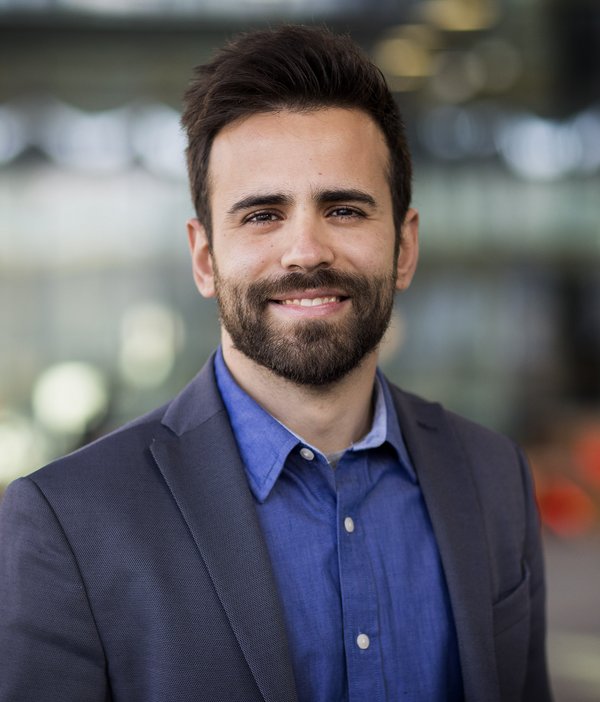
Dr. Antoni Forner-Cuenca is an Associate Professor in the Electrochemical Materials and Systems Group at the Department of Chemical Engineering and Chemistry at Eindhoven University of Technology. The ultimate goal of his research is to accelerate the deployment of transformative energy technologies into the real world. To do so, the team employes fundamental principles at the interface of materials science, (electro)chemical engineering, and physical chemistry to design, synthesize, characterize, and simulate novel materials into next-generation electrochemical devices. Currently his team works with large-scale energy storage with flow batteries, energy conversion through hydrogen fuel cells and electrolyzers, as well as decarbonization of the chemical industry through efficient chemical conversions and separations
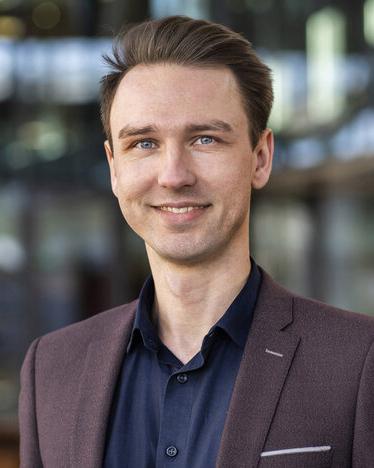
Sustainable Polymers in Circular Harmony
Dr. Fabian Eisenreich
Polymer Performance Materials group, Eindhoven University of Technology
LinkedIn: Fabian Eisenreich | LinkedIn
Reducing the need for virgin plastic production and diverting plastic waste from landfills or natural ecosystems are major challenges for our society. Establishing a circular plastic economy offers a solution to these issues, relying on the development of innovative polymers and recycling technologies. Fabian’s research team has recently developed new types of polymers specifically designed for closed-loop recycling and innovated polymer architecture in an effort to promote sustainability, making significant contributions to the progress of circular polymers.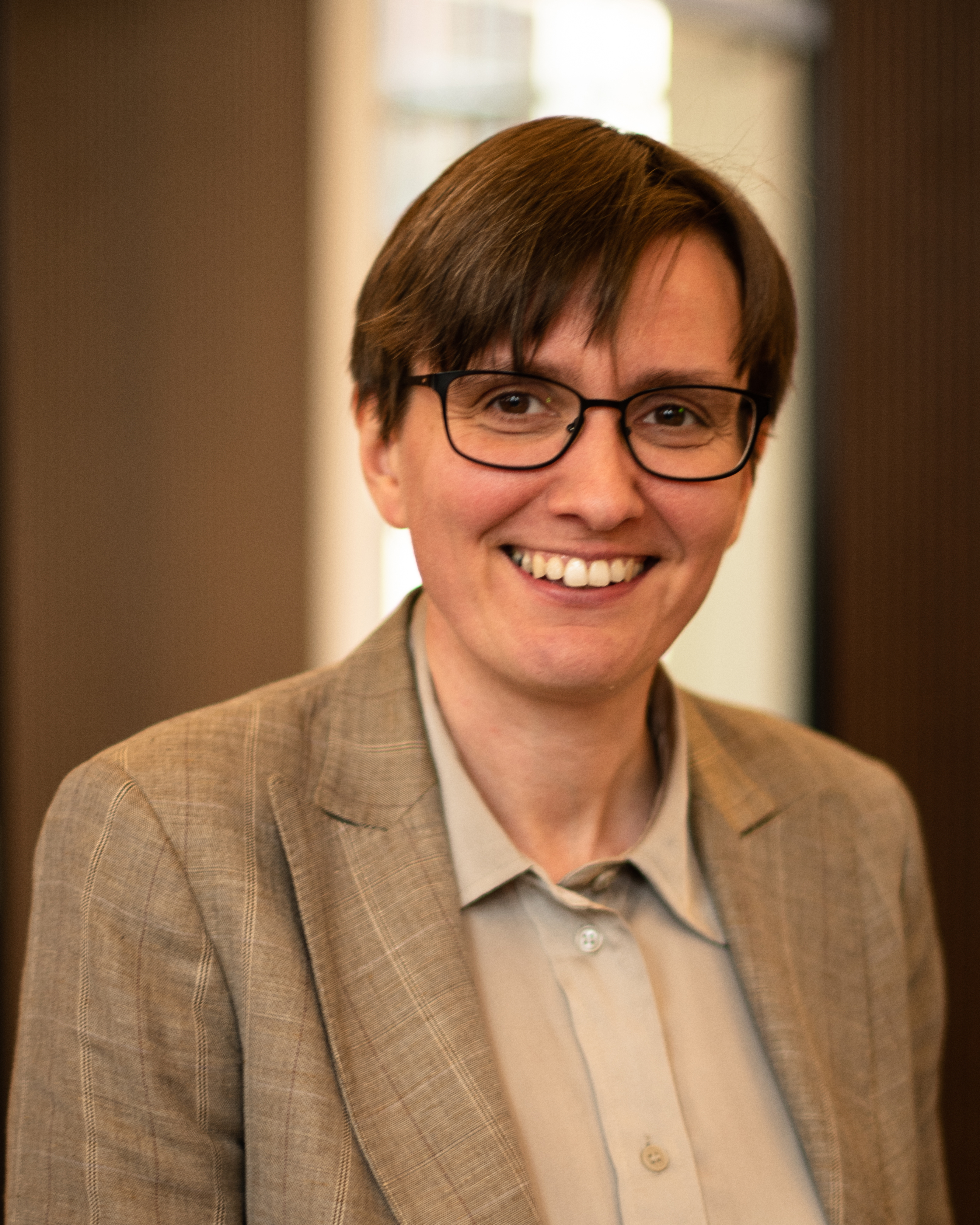
From lignin derived building blocks to Covalent Adaptable Networks and Recyclable Materials
Assoc. Prof. Katrien Bernaerts
Sustainable Polymer Synthesis group, Aachen-Maastricht Institute for Biobased Materials, Maastricht University, the Netherlands
LinkedIn: Katrien Bernaerts | LinkedIn
In response to the escalating challenges associated with traditional polymer materials, dr. Bernaerts’s integrated study demonstrates innovative approaches towards sustainable polymer synthesis and application. The collective research endeavors delve into the realms of covalent adaptable networks (CANs) derived from biomass sources, with a particular focus on lignin-derived building blocks. The overarching objective is to address pressing environmental concerns by exploring green and low-carbon feedstock, eco-friendly preparation processes, and effective material recycling. As such, this work contributes to the ongoing transition towards a circular economy.

.jpg)
Circular Transition and its relation to Energy Transition
Jo Peters
Chemelot Circular Hub
LinkedIn: Jo Peters | LinkedIn, Céline Fellay | LinkedIn
Rather than talking about Circular Chemistry we will discuss the Circular Transition, its dimensions, and its relation to the Energy Transition in the context of Chemelot Circular Hub and Brightsite. Chemelot Circular Hub is a triple helix alliance of stakeholders (Government, Industry, Education) situated at the Chemelot Campus in Sittard-Geleen (Limburg). Its aim is to power and accelerate the circular transition by benefitting from the vibrant ecosystem that exists on and around the campus. Brightsite was founded by Brightsite Chemelot Campus, Maastricht University, TNO and Sitech Services and aims to identify and develop novel technology that is required for the circular transition.
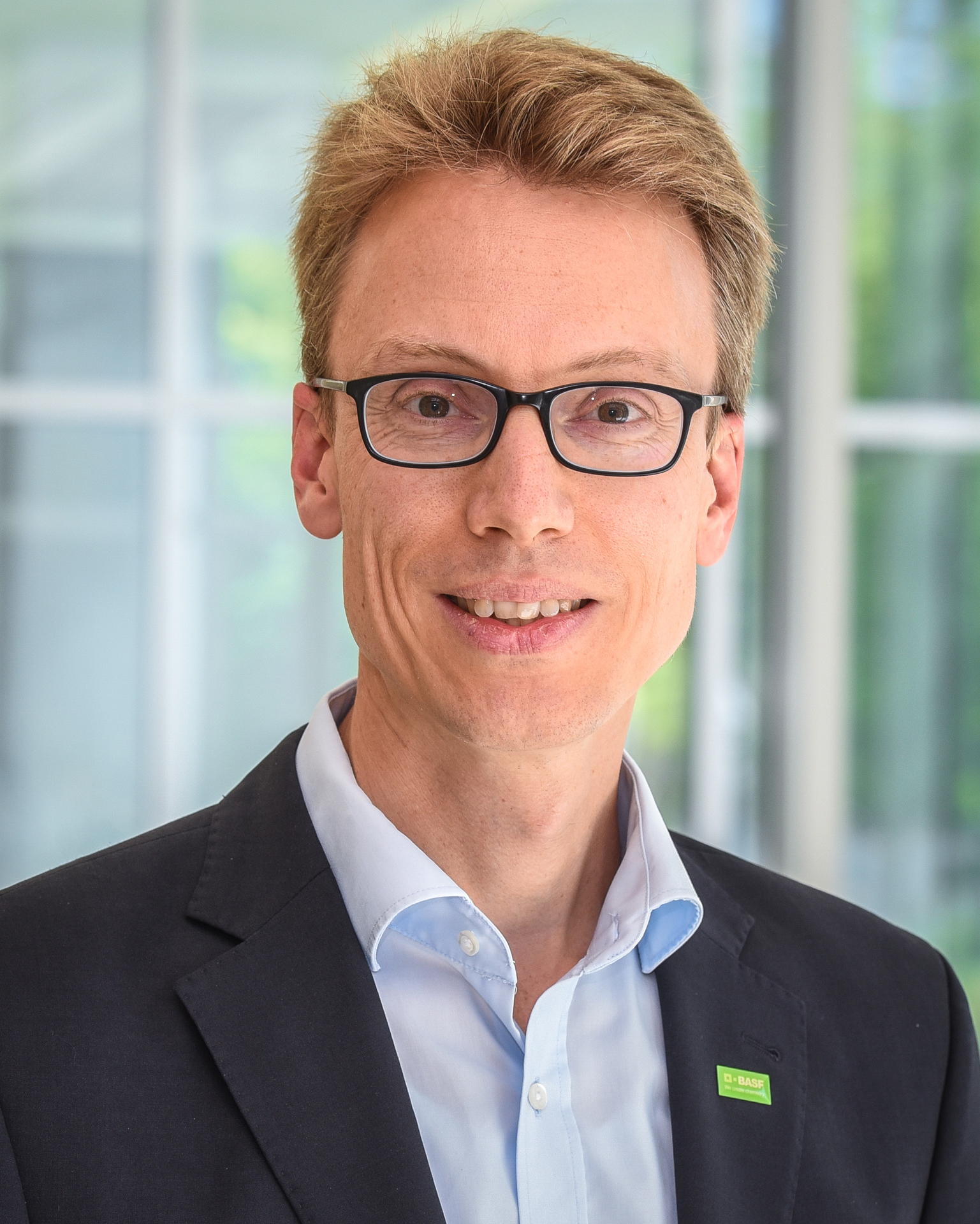
Circularity for polymeric materials with complementary recycling processes and design
Dr. Bernhard von Vacano
Senior Research Fellow, BASF SE
LinkedIn: Bernhard von Vacano | LinkedIn
In a sustainable circular economy, polymers need to transition to recycled and biobased feedstock and CO2 emission neutrality. Structural polymers are in most cases fundamentally suited for recycling, as they can be reprocessed with relatively low energy input as a material, cleaved back into their monomers or converted back to feedstock. Today, however, these approaches still fall short in quantitatively diverting waste towards material reuse. Recycling back into high value applications requires a portfolio of existing and emerging technology solutions: Sustainable design of products and polymers, recycling technologies, appropriate business models, and enabling technologies. These building blocks need to be developed and combined, and finally implemented at scale.
.jpg)
Exploring the chemical space through computational screening and AI to discover molecules for energy storage
Dr. Süleyman Er
Head of Solar Fuels Department, Group Leader of Autonomous Energy Materials Discovery, DIFFER
LinkedIn: Süleyman Er | LinkedIn
Süleyman Er leads the Solar Fuels Department and the Autonomous Energy Materials Discovery Group at DIFFER. Additionally, he serves as a member of DIFFER and TU/e-EIRES management teams. His academic background in Chemistry and Physics has paved the way for his research focused on the development and application of computational and AI methods to accelerate the discovery of molecules and materials for various energy conversion and storage applications. Redox flow batteries (RFBs) represent a promising technology for energy storage, offering scalable solutions to integrate renewable energy sources into the electricity grid. However, advancing RFB technologies faces challenges in identifying electroactive compounds that are abundant or easily synthesizable, electrochemically efficient, stable, safe, and in line with circular chemistry principles. Dr. Süleyman Er will introduceresearch projects that merge AI with computational screening for identifying electroactive molecules for RFBs.

The Pillars of Circularity
Jaap den Doelder (R&D Fellow) and Melissa Dunkle (Senior Research Scientist)
Dow Benelux
LinkedIn: Jaap den Doelder | LinkedIn, Melissa Dunkle | LinkedIn
For the chemical industry, plastics circularity requires a multifaceted approach, where various recycling routes should be incorporated into the overall strategy. As part of Dow's 2030 goal to transform plastic waste and other forms of alternative feedstocks into 3 million metric tons of circular and renewable solutions annually, both mechanical and chemical (or advanced) recycling options are under investigation. In this presentation, we will highlight our plastics circularity strategy. We will focus on technology, from challenges to opportunities. We will also highlight the importance of partnerships in this journey.
.jpg)
Circular Chemicals in Shell
Sipke Wadman (Lead Chemist)
Shell
LinkedIn: Sipke Wadman | LinkedIn
In this lecture we will consider the role of carbon in the shell energy transition scenarios. These energy scenarios describe possible futures and allow us to think about projects and technologies in different possible futures. In any of these scenarios, renewable energy will play an increasingly important role in the primary energy mix. Next to the energy transition a carbon transition will be necessary; currently virtually all carbon-based products are oil derived, and intimately linked to the energy infrastructure. Not only would they serve as energy carrier in hard to electrify sectors, but roughly 20% of the oil is destined for non-energy products. We will discuss alternative carbon sources in the light of scale, timeframe and technical feasibility. Two specific projects will be highlighted in which we explore those sustainable carbon sources. In one of these projects, non-technical aspects drove us to halt further development. The other project is currently under construction at the Shell Moerdijk chemicals park.
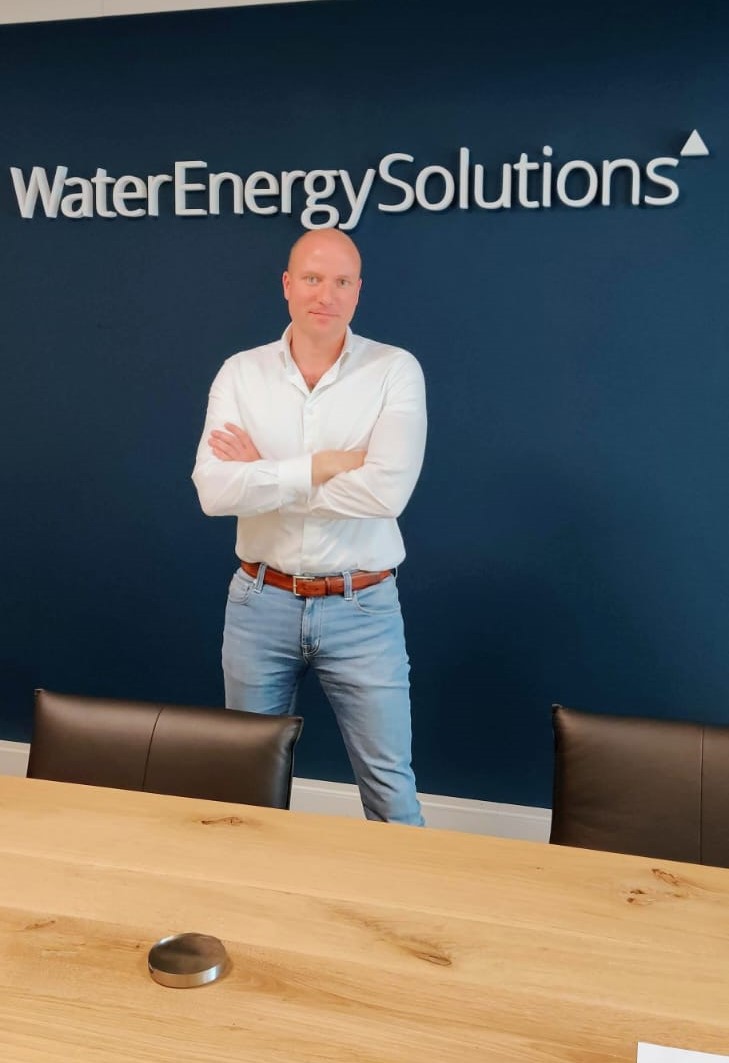
Aaldrik Haijer
CEO, Water Energy Solutions
LinkedIn: Aaldrik Haijer | LinkedIn
Water Energy Solutions is a company focusing on energy efficiency, production effectiveness and sustainability strategy. Aaldrik will take listeners on a tour of sustainable production and show why moving towards biobased products can only be achieved by raising circularity in our feedstock and production chains.

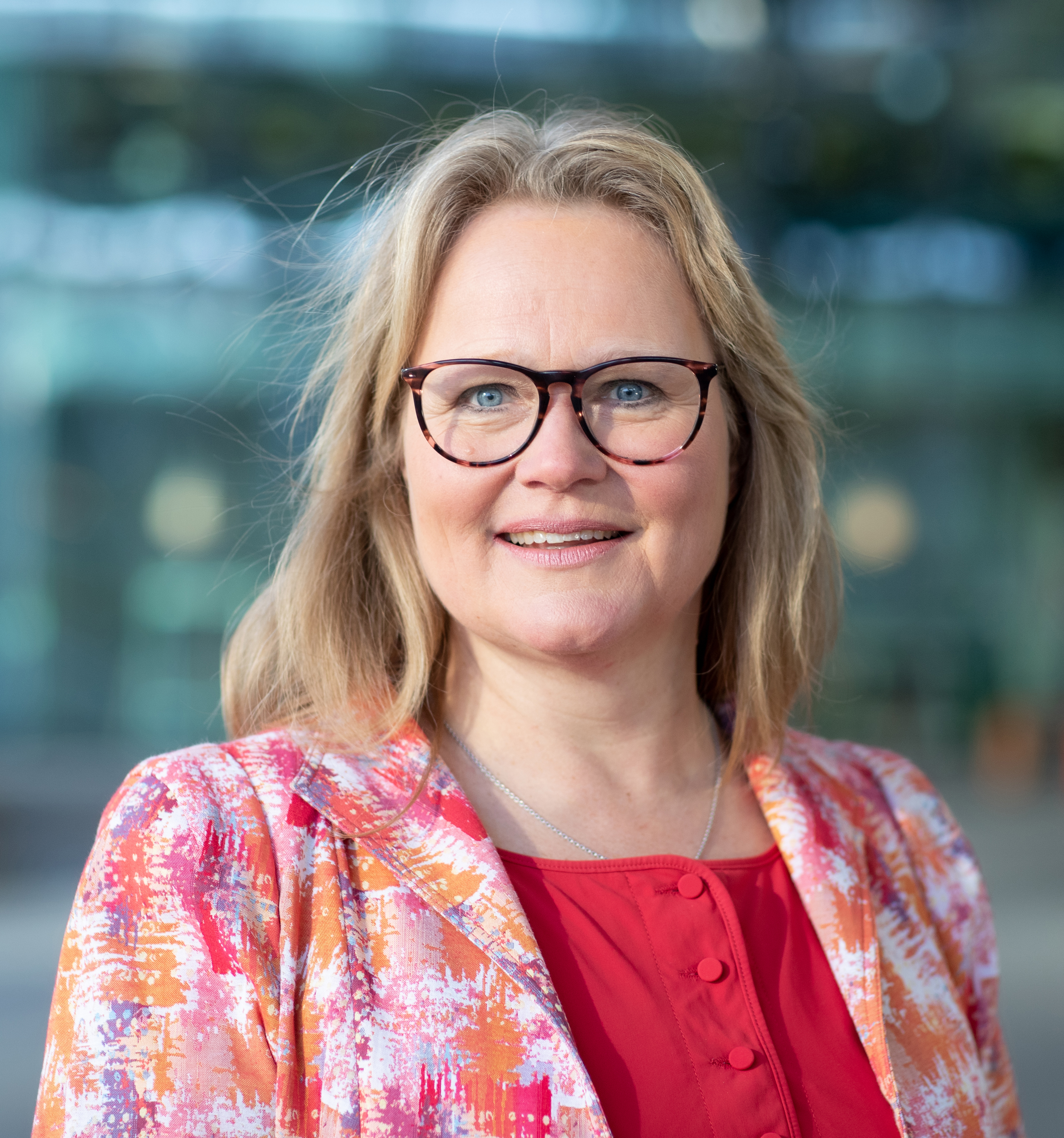
Prof. Dr. Ir. Kitty Nijmeijer: Dean of the faculty of Chemical Engineering and Chemistry, chair of Membrane Material and Processes group.
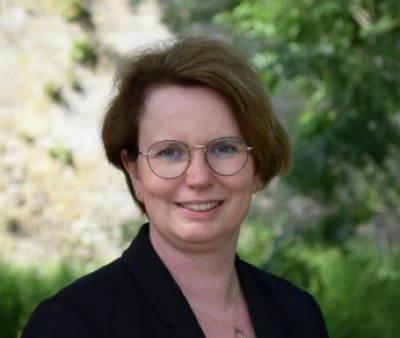
Prof.dr. Yvonne van der Meer: Chairman of the KNCV.
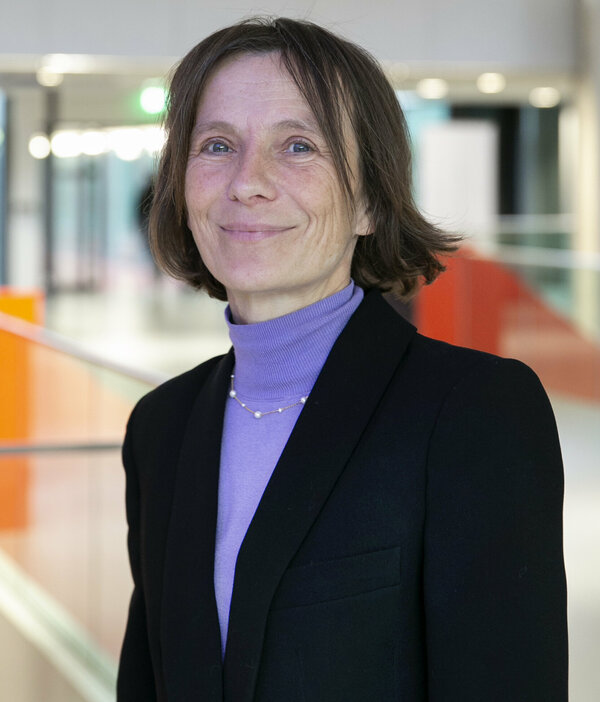
Prof. Dr. Silvia Lenaerts: Rector Magnificus of the TU/e.
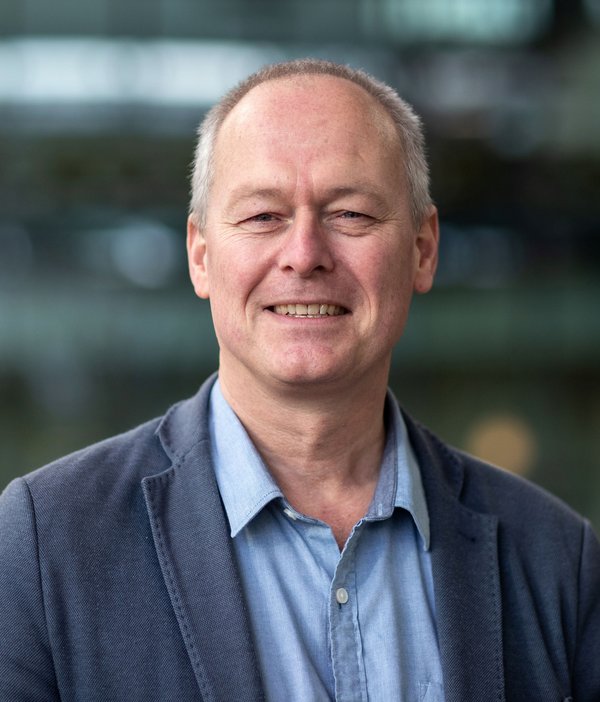
Prof. Dr. Ir. John van der Schaaf: Director of Education of the faculty of Chemical Engineering and Chemistry, full professor of the Sustainable Process Engineering group.
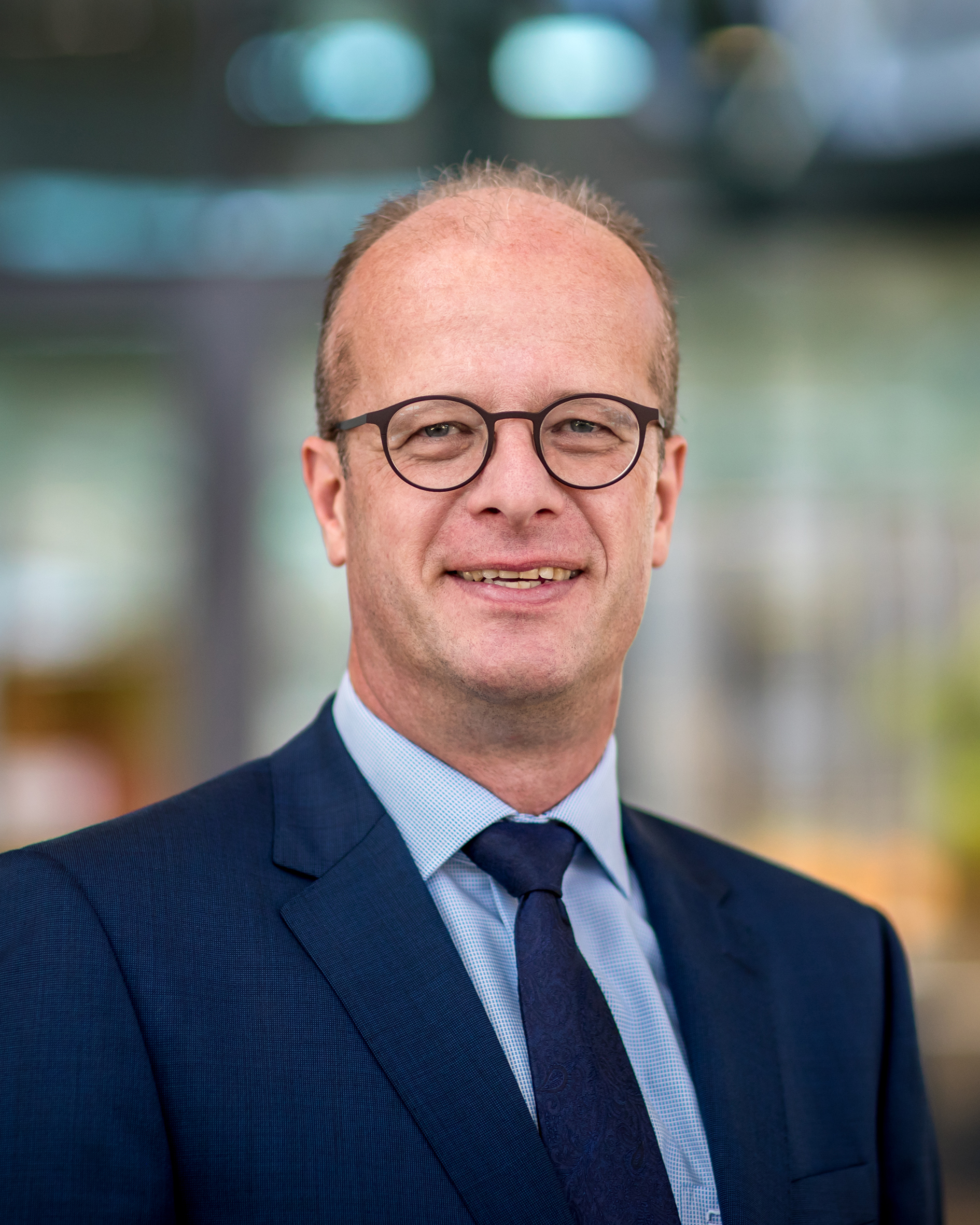
Ruud van de Donk: Interim managing director of the faculty of Chemical Engineering and Chemistry.
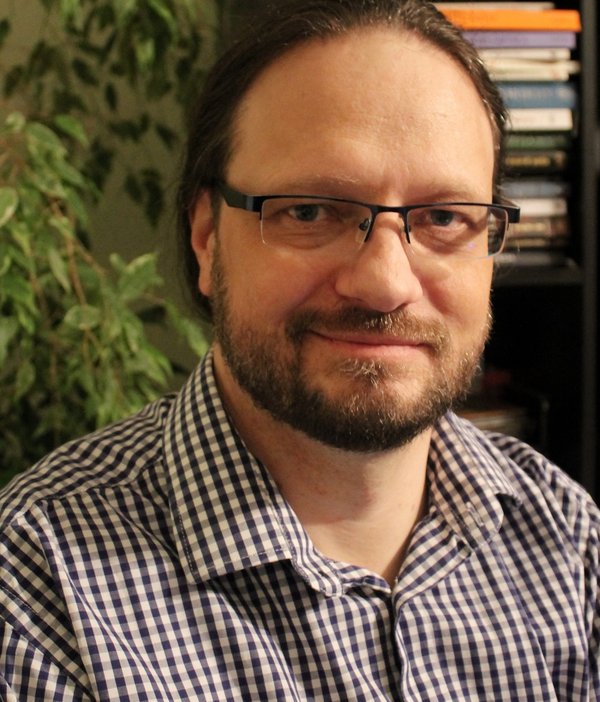
Prof. Dr. Željko Tomović: Full professor of the group Polymer Performance Materials.
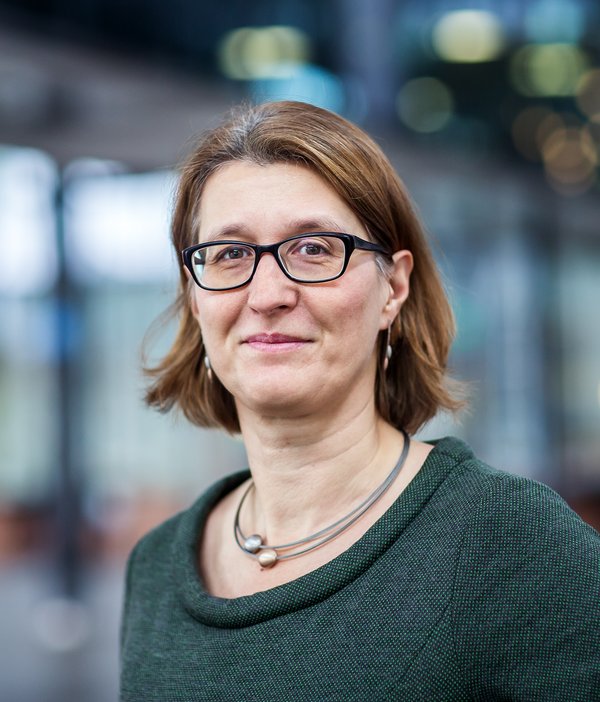
Prof. Dr. Ir. Anja Palmans: Full professor of the Supramolecular Chemistry and Catalysis group.
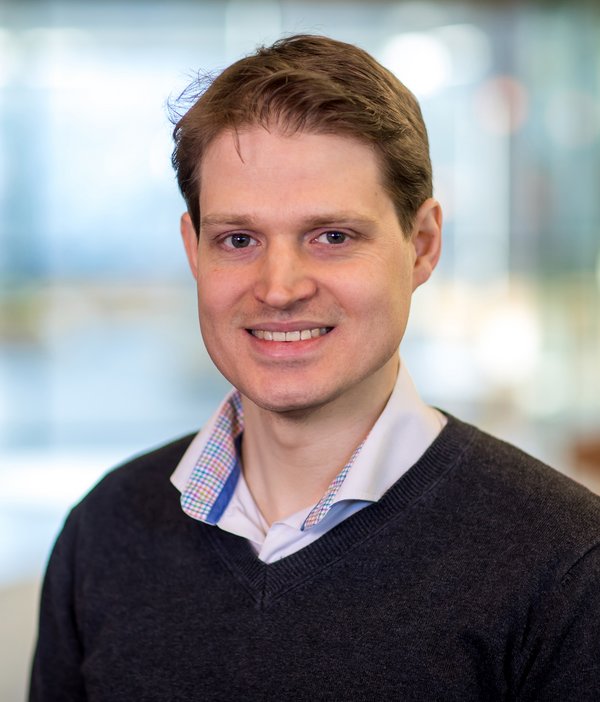
Dr. Ir. Ivo Filot: Assistant Professor in the group Inorganic Materials and Catalysis.
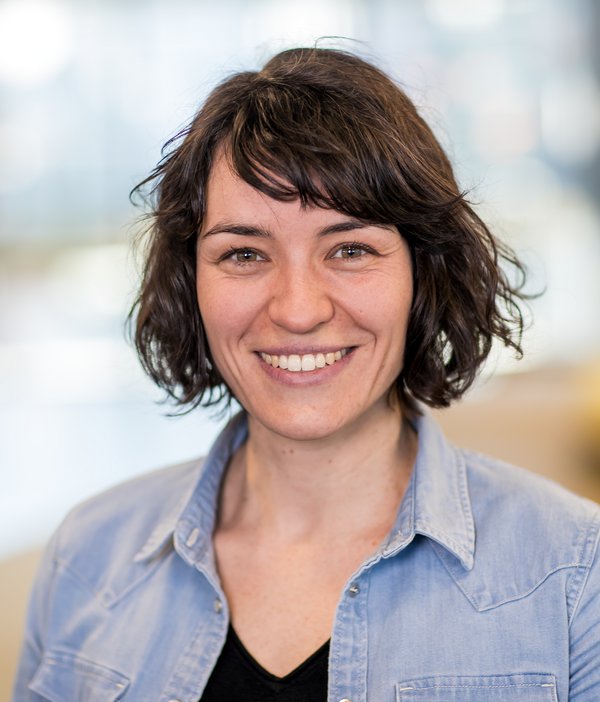
Dr. Ghislaine Vantomme: Assistant Professor in the Macro-Organic Chemistry group.

Ynse is a first year Chemical Process Technology master’s student. Being the chairman of the committee, he is responsible for the organization meetings, planning of the symposium, and ensuring the rest of the committee members fulfill their roles.

Sanne is a fourth year chemical engineering and chemistry bachelor’s student, as well as the Commissioner of Academic Affairs of the 66th board of T.S.V. Jan Pieter Minckelers. As secretary, she keeps track of the committee’s communication, makes the program booklet, and is responsible for contact with speakers.
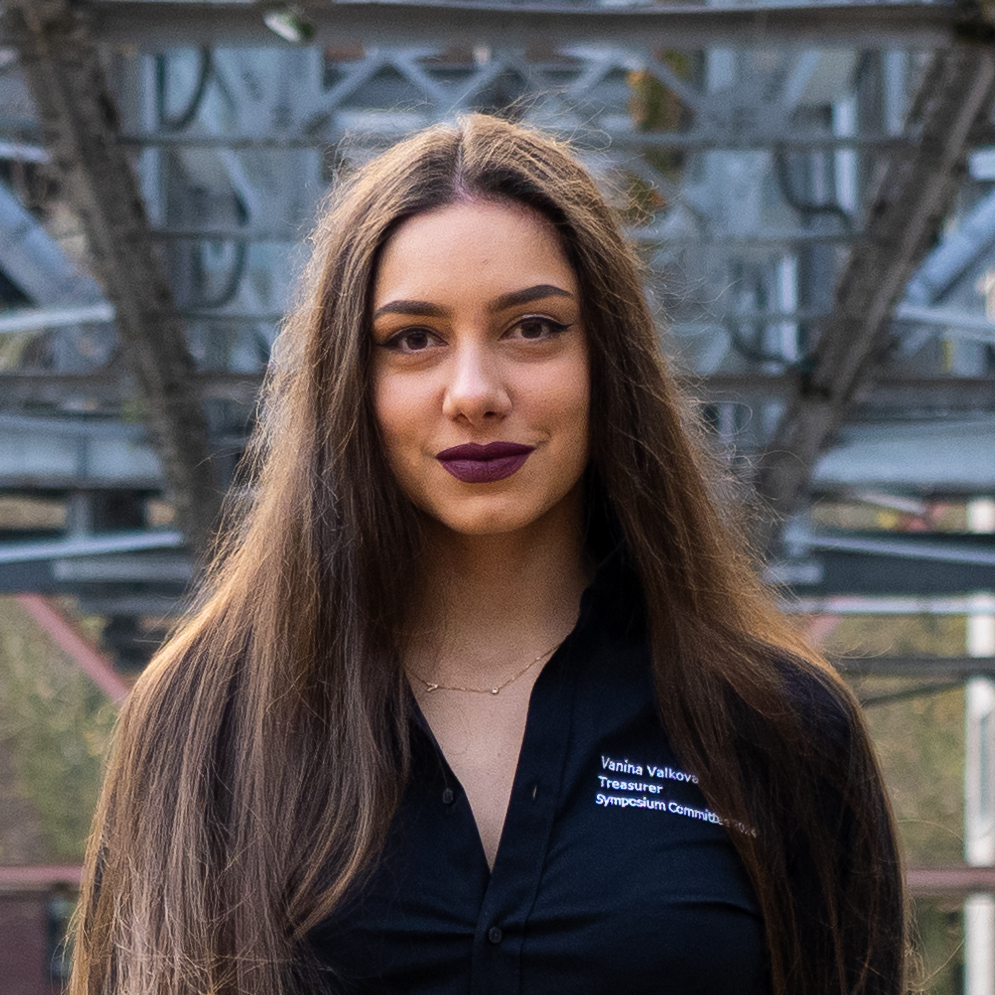
Vanina is a first year Materials Science and Molecular Chemistry master’s student. Her responsibilities as treasurer include making and adjusting the budget, as well as controlling all financial activity of the symposium.

Brendon is a second year chemical engineering and chemistry bachelor’s student. Serving as coordinator of external affairs, he keeps contact with companies and secures external sponsorships for the event.
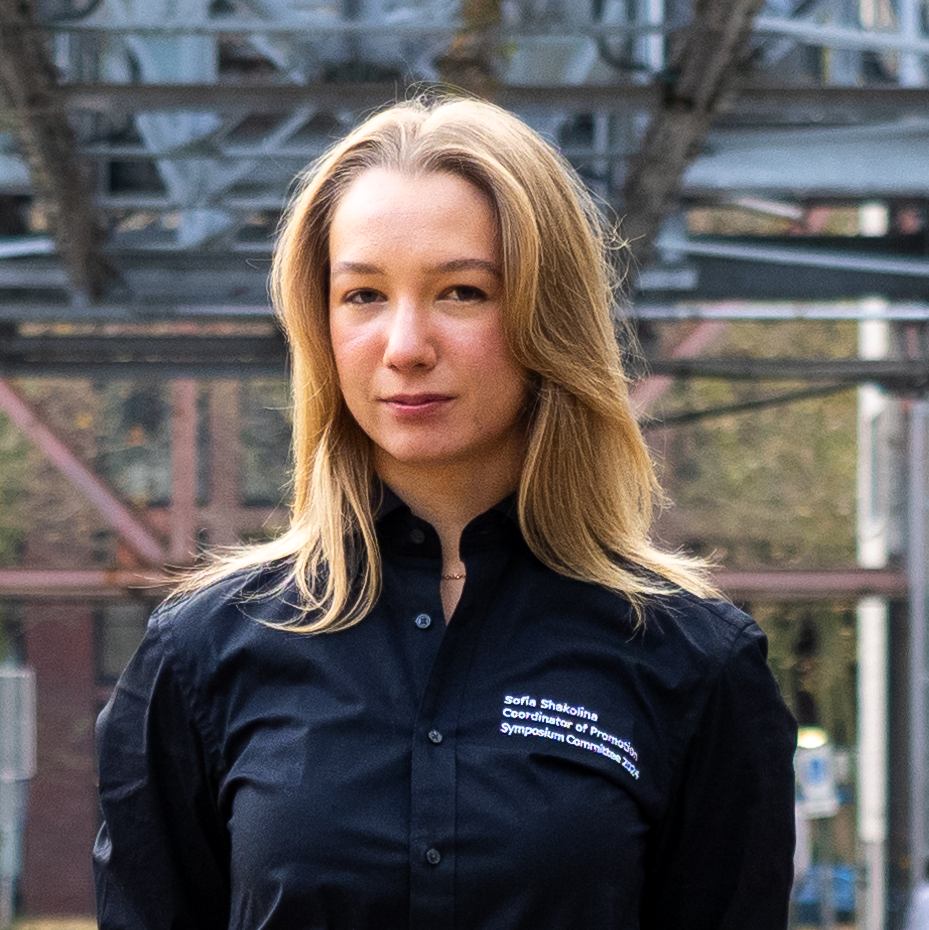
Sofia is a second year chemical engineering and chemistry bachelor’s student. As coordinator of promotion, she takes care of the branding, marketing strategies, website, and social media presence of the symposium.
For any questions or inquiries, please use the contact form below. Our team is ready to assist you. Thank you for your interest in our symposium 2024.